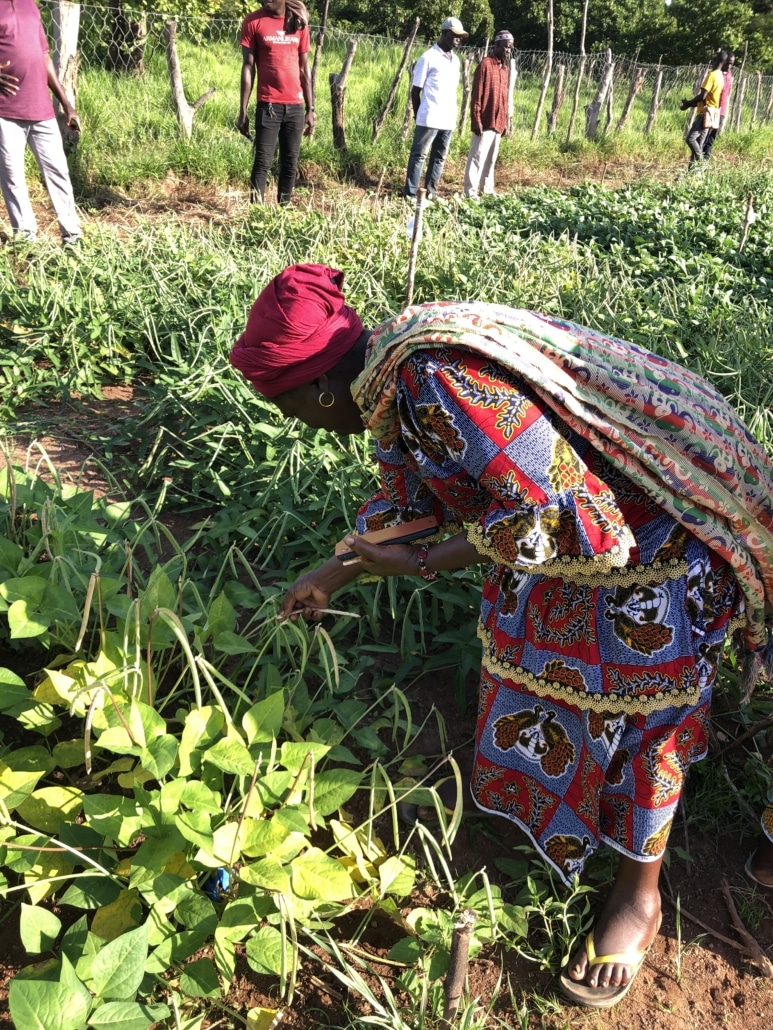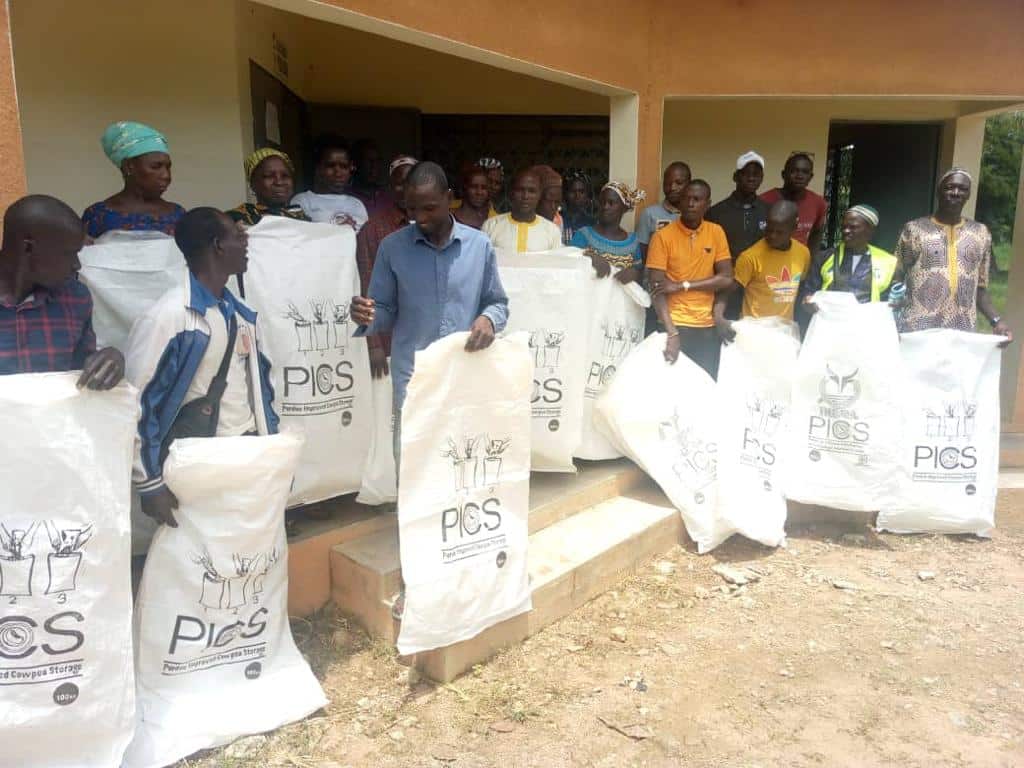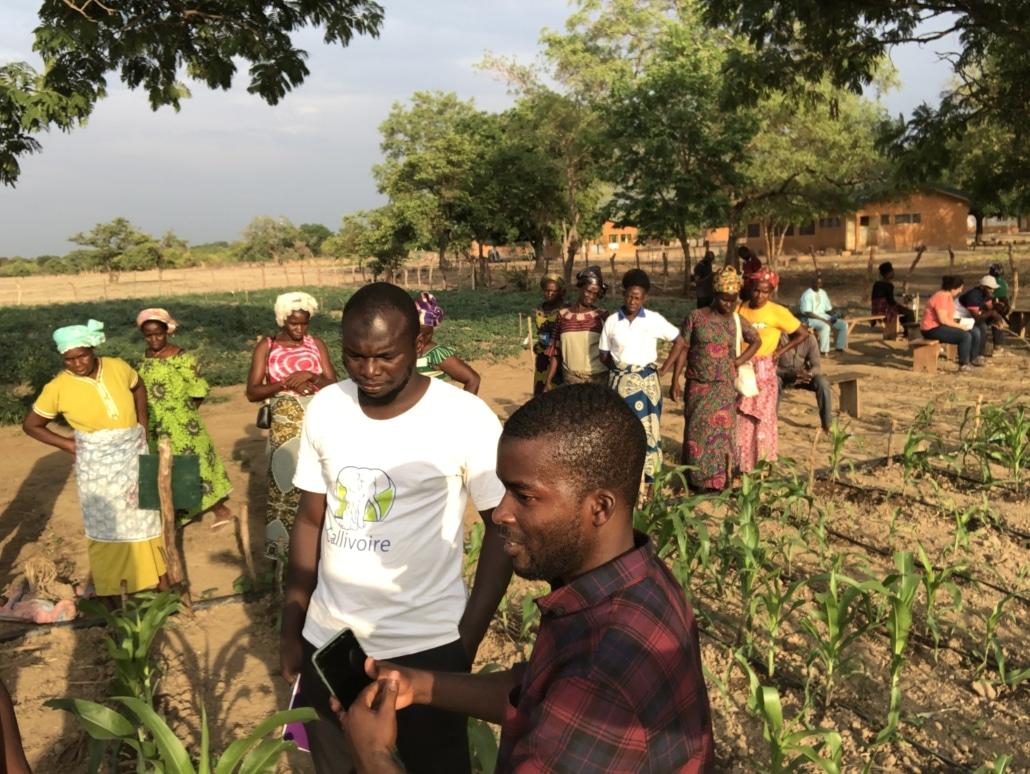Fert has been supporting cowpea (small bean) farmers in the northern region of Côte d’Ivoire since 2022 in partnership with Fondation Avril. With groundnuts, cowpea stands out as one of the two primary legumes cultivated in the region and is the most consumed. With a short growth cycle, attractive prices, and low input requirements, cowpea boasts several advantages. It ensures income on small plots, provides cash during lean periods, and contributes to household nutrition through the consumption of both seeds and leaves.
To assist several hundred cowpea producers in improving their production and income, a training program was offered to enable them to become farmer-relays: recognized man and women producers in their villages for their technical expertise, openness to innovation, and the desire to share it with their cooperative members. This is the approach that Fert promotes in nearly all of its advisory actions and has proven successful in various contexts.
The training took place at the CFAR des Savanes in Niofoin, an agricultural training center supported by Fert and the Louis Dreyfus Foundation, which also hosts young farmers in continuous training in addition to those in initial training. The training was hands-on, thanks to regular visits to two experimental plots hosted by the CFAR. At three points in the crop cycle, the farmer-relays were able to observe the path and growth of various cowpea varieties. These field visits facilitate dialogue, the sharing of knowledge by each farmer, and the availability of varieties that they truly appreciate since they have seen them ‘in action.’
To make the training accessible to all, it was conducted entirely in the Sénoufo language. The main contributor was Fert’s maize-cowpea agronomist, supported by the rest of the team. A researcher from the University Péréfolo Gon Coulibaly (UPGC) in Korhogo, a cowpea specialist, also contributed by presenting the extensive diversity of traditional cowpea varieties.
In the 2023 agricultural campaign, a network of demonstration plots was deployed to implement improved technical procedures for cowpea and to provide a diffusion support in villages, led by the FRs themselves. Most of the received cowpea varieties (quality local varieties, seen and tested at CFAR) were well-received by the producers, and they will use the harvest as seeds in 2024. Technical choices (variety, light fertilization, etc.) and the guidance from Fert’s agronomist ensured a production often much better than the common practices in the area. The plots are currently in the harvest phase, and an assessment will be conducted at the end of the year to compare the technical and economic outcomes of these plots and plan for the future.
The 26 cowpea farmer-relays are now a key component of advisory services for this traditional crop with strong economic potential. Trained throughout the year, they have also shared their local knowledge and expertise to become innovative and relevant facilitators for their FOs. The meetings among FRs, the exchange of varieties and knowledge, inspire the hope for a real dynamic and dissemination to numerous male and female producers.
Beyond cowpea, it is the entire cropping system that producers hope to enhance, with better soil fertility management, more proficient technical procedures, reduced costs, and ultimately improved income.






